
Lucerne: The Heart of Swiss Charm
Lucerne is a city that seems to have stepped out of a fairy tale. Nestled between the snow-capped mountains and the serene Lake Lucerne, this picturesque city offers breathtaking views at every turn. The medieval architecture, with its cobblestone streets and charming wooden bridges, transports you back in time. The iconic Chapel Bridge, adorned with flowers and historic paintings, is a sight to behold. Lucerne is also a hub for culture and history. The Swiss Transport Museum offers an engaging journey through the history of transport and communication. For art lovers, the Rosengart Collection showcases works by Picasso and other great artists. The city's old town is a treasure trove of well-preserved buildings and lively squares, perfect for a leisurely stroll. Nature enthusiasts will find Lucerne to be a paradise. The nearby Mount Pilatus and Mount Rigi offer hiking trails with stunning vistas. A boat trip on Lake Lucerne provides a peaceful escape and a unique perspective of the surrounding landscapes. In winter, the city transforms into a wonderland, with festive markets and nearby ski resorts offering snowy adventures.
Local tips in Lucerne
- Visit the Chapel Bridge early in the morning or late in the evening to avoid crowds and capture the best photos.
- Take a combined boat and cogwheel train trip to Mount Pilatus for an unforgettable experience.
- Explore the old town on foot to fully appreciate the historic architecture and hidden gems.
- Check out the local markets for unique Swiss souvenirs and delicious local treats.
- Purchase a Swiss Travel Pass for unlimited travel on public transport, including boats, trains, and buses.
Neighbourhoods in Lucerne
Lucerne: The Heart of Swiss Charm
Lucerne is a city that seems to have stepped out of a fairy tale. Nestled between the snow-capped mountains and the serene Lake Lucerne, this picturesque city offers breathtaking views at every turn. The medieval architecture, with its cobblestone streets and charming wooden bridges, transports you back in time. The iconic Chapel Bridge, adorned with flowers and historic paintings, is a sight to behold. Lucerne is also a hub for culture and history. The Swiss Transport Museum offers an engaging journey through the history of transport and communication. For art lovers, the Rosengart Collection showcases works by Picasso and other great artists. The city's old town is a treasure trove of well-preserved buildings and lively squares, perfect for a leisurely stroll. Nature enthusiasts will find Lucerne to be a paradise. The nearby Mount Pilatus and Mount Rigi offer hiking trails with stunning vistas. A boat trip on Lake Lucerne provides a peaceful escape and a unique perspective of the surrounding landscapes. In winter, the city transforms into a wonderland, with festive markets and nearby ski resorts offering snowy adventures.
When is the best time to go to Lucerne?
Iconic landmarks you can’t miss
Chapel Bridge
Discover the enchanting Chapel Bridge in Lucerne, a historical masterpiece adorned with stunning paintings and breathtaking views of the Swiss landscape.
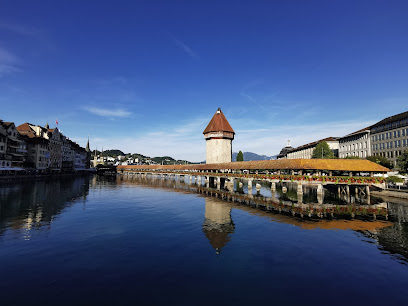
Lion Monument
Experience the poignant artistry of the Lion Monument in Lucerne, a tribute to heroism and sacrifice set against breathtaking Swiss landscapes.
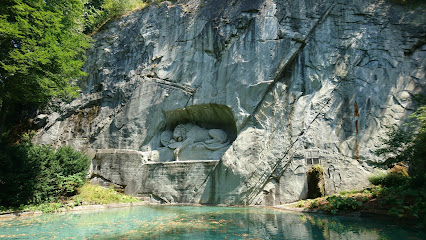
Luzern
Explore Luzern, a scenic Swiss city where stunning lakes meet historic charm, serving as the perfect gateway to unforgettable alpine adventures.
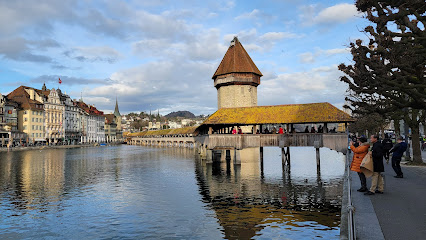
Spreuerbrücke
Discover the historic Spreuerbrücke in Lucerne, a stunning wooden bridge adorned with beautiful murals and rich in Swiss heritage.
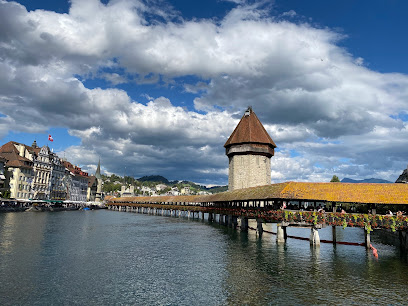
Museggmauer
Explore the captivating Museggmauer in Lucerne, a historical fortress with stunning views and rich cultural heritage.
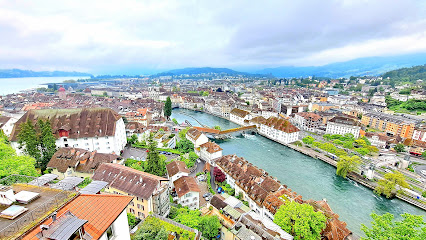
Glacier Garden of Lucerne
Explore the stunning geological formations and beautiful landscapes at the Glacier Garden, an open-air museum in Lucerne, Switzerland.
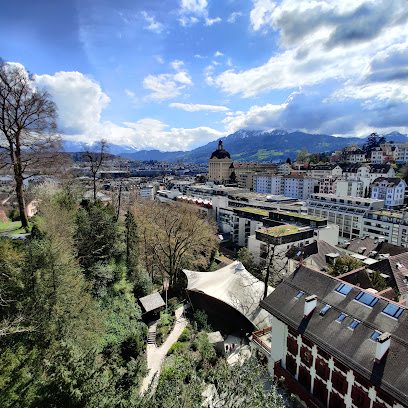
Jesuitenkirche Hl. Franz Xaver
Explore the breathtaking baroque beauty of Jesuitenkirche Hl. Franz Xaver in Lucerne, a serene oasis of art and spirituality.
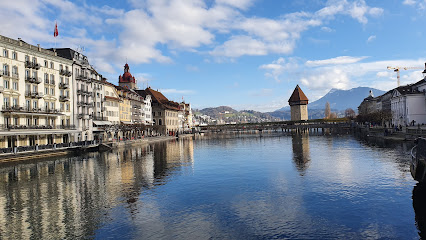
Meggenhorn
Discover the enchanting Meggenhorn Castle, where Swiss history meets breathtaking views of Lake Lucerne and stunning gardens.
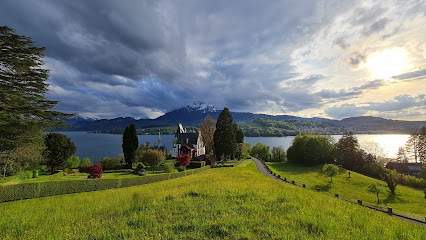
Zytturm
Explore the historic Zytturm in Lucerne, Switzerland, a stunning medieval clock tower offering breathtaking views and a glimpse into the city’s rich heritage.
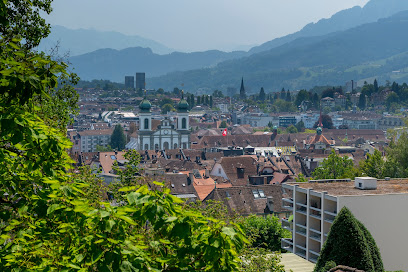
Dreilindenpark (Konsipark)
Discover the tranquil beauty of Dreilindenpark in Lucerne, a perfect blend of nature and art for every traveler.
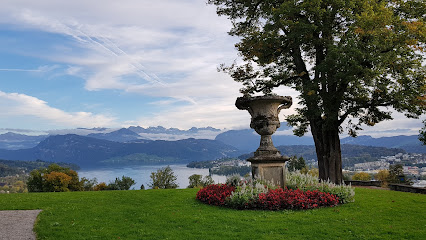
Richard Wagner Museum Lucerne
Explore the rich musical heritage of Richard Wagner at his stunning museum in Lucerne, surrounded by breathtaking views of Lake Lucerne.
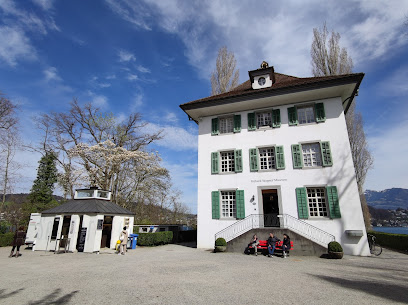
Historisches Museum Luzern
Explore Lucerne's captivating history at the Historisches Museum Luzern, where fascinating exhibitions and rich artifacts await every visitor.
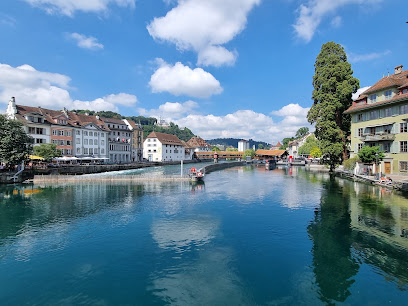
Lucerne Needle Dam
Explore the Lucerne Needle Dam, a historical landmark that combines stunning views, rich history, and peaceful surroundings in the heart of Switzerland.
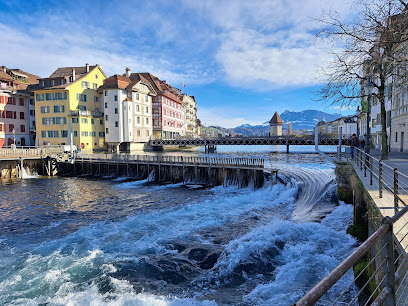
Franciscan Church
Discover the rich heritage and tranquil beauty of the Franciscan Church, a historical gem in the heart of Lucerne, Switzerland.
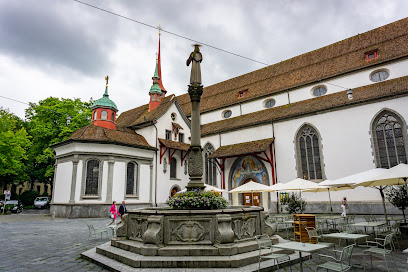
Männliturm
Explore the historic Mäennliturm tower in Lucerne for stunning views and a taste of medieval Swiss history.
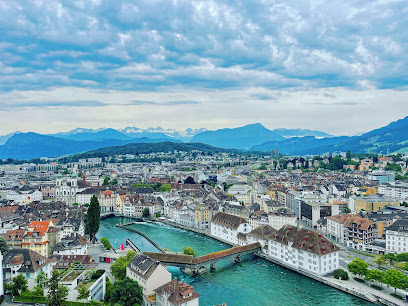
Unmissable attractions to see
Chapel Bridge
Discover the iconic Chapel Bridge in Lucerne, a stunning blend of history and picturesque views, making it a must-see for every traveler.
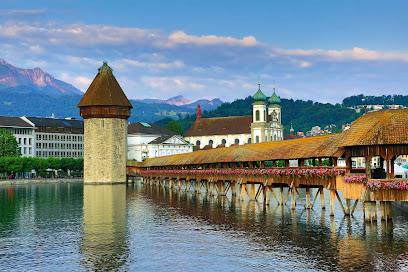
Zoo Zürich
Discover the breathtaking wildlife and engaging exhibits at Zoo Zürich, a top-rated animal park and aquarium in Switzerland, perfect for family outings.
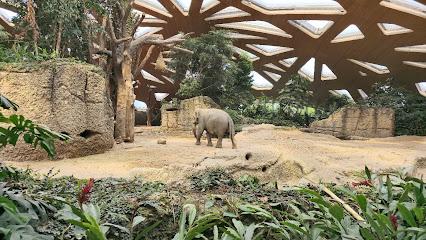
Titlis Cliff Walk
Discover the breathtaking beauty of the Titlis Cliff Walk, a thrilling suspension bridge offering stunning views of the Swiss Alps and unforgettable alpine adventures.
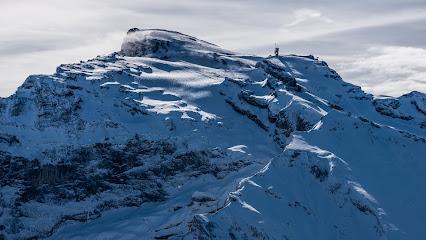
Lindt Home of Chocolate
Explore the Lindt Home of Chocolate in Kilchberg for an unforgettable journey through chocolate history, tasting, and creation in Switzerland.
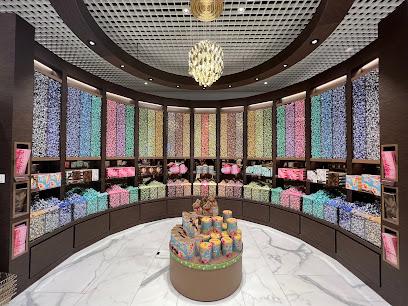
Swiss Museum of Transport
Explore the Swiss Museum of Transport in Lucerne, where history and technology come alive through fascinating exhibits and interactive experiences.
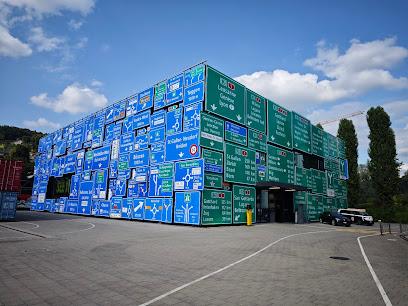
Grossmünster
Experience the architectural beauty and historical significance of Grossmünster, a must-visit Protestant church in Zürich.
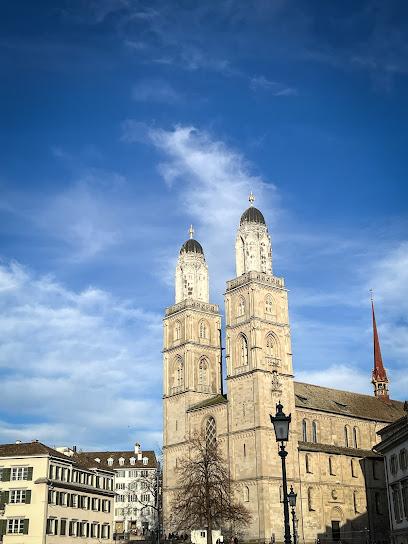
Swiss National Museum
Explore Switzerland's vibrant cultural history at the Swiss National Museum in Zurich, where art, artifacts, and tradition come to life.
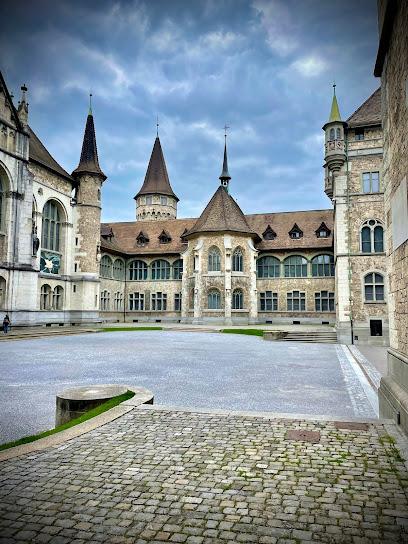
Kunsthaus Zürich
Explore Kunsthaus Zürich, a premier art museum showcasing exceptional collections from the Middle Ages to contemporary masterpieces.
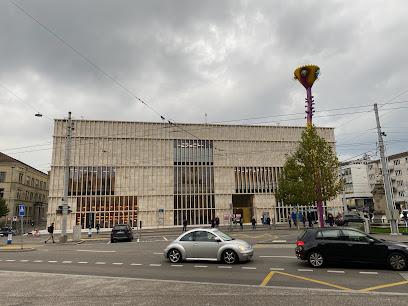
Zürich Opera House
Discover the cultural heart of Zürich at the stunning Zürich Opera House, where opera, ballet, and orchestral performances come to life in an exquisite setting.
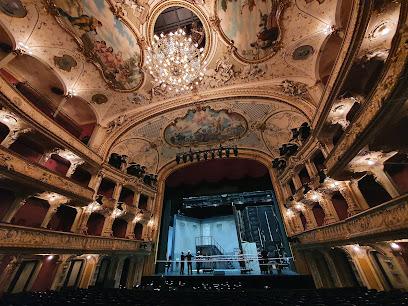
Ballenberg, Swiss Open-Air Museum
Experience the rich heritage of Switzerland at Ballenberg, an open-air museum showcasing historic buildings, traditional crafts, and breathtaking alpine views.
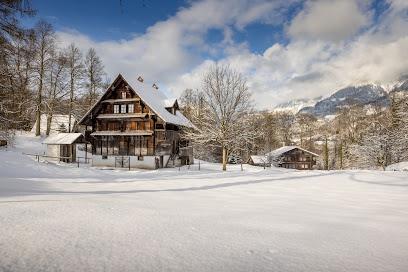
Kloster Einsiedeln
Explore the breathtaking Kloster Einsiedeln, a baroque masterpiece and spiritual sanctuary nestled in the scenic Swiss countryside, perfect for your travel itinerary.
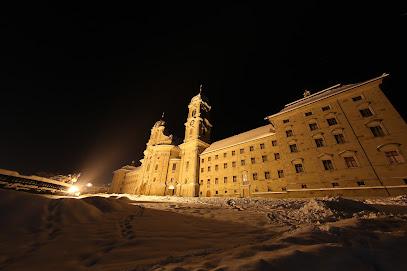
Lucerne Culture and Congress Centre
Explore the Lucerne Culture and Congress Centre, a premier cultural hub offering world-class performances and breathtaking views by Lake Lucerne.
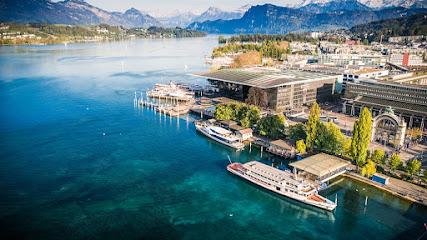
Chinagarten Zürich
Experience the serene beauty of Chinagarten Zürich, a cultural gem featuring traditional Chinese garden design amidst lush landscapes.
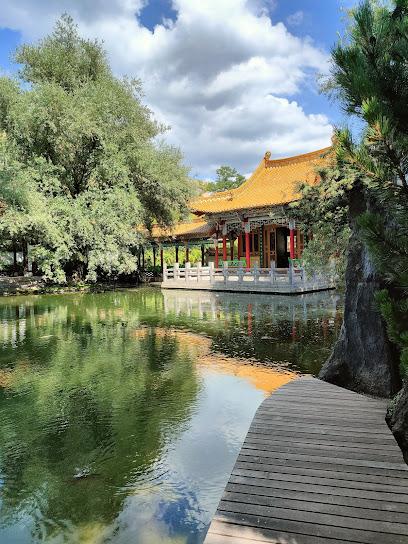
FIFA Museum
Explore the FIFA Museum in Zurich: A captivating journey through the history and passion of football, perfect for fans and tourists alike.
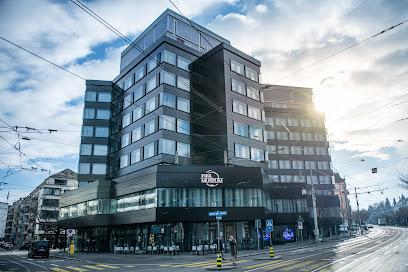
Wildnispark Zürich Langenberg
Explore the beauty of Swiss wildlife at Wildnispark Zürich Langenberg, a unique animal park nestled in the picturesque hills of Langnau am Albis.
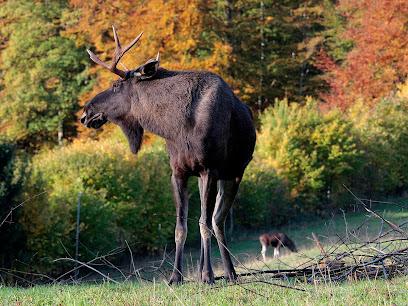
Essential places to dine
Pfistern
Savor the essence of Switzerland at Pfistern – where tradition meets flavor in the heart of Lucerne.
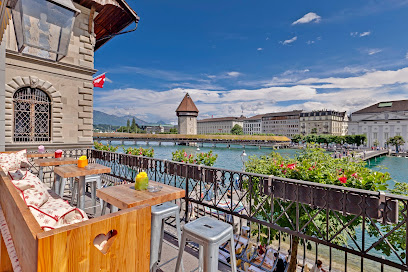
Mill'Feuille
Experience culinary excellence at Mill'Feuille in Lucerne – where tradition meets innovation in every delicious bite.
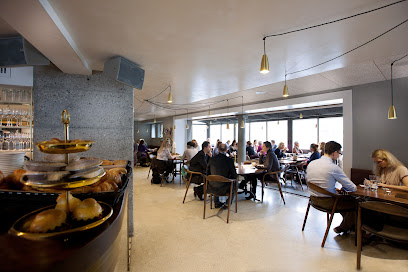
Bolero
Savor the authentic taste of Spain at Bolero in Lucerne - a culinary journey filled with vibrant flavors and warm hospitality.
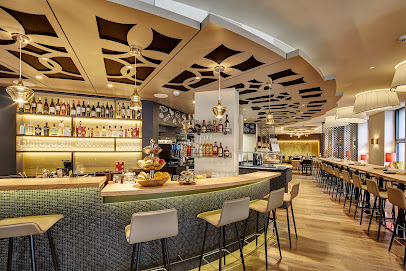
Wolf Burger & Steak Bar
Savor mouthwatering burgers and steaks at Wolf Burger & Steak Bar in Lucerne – where flavor meets ambiance!
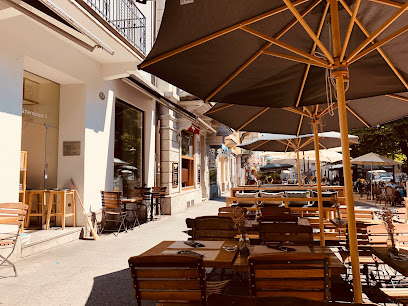
Stadtkeller
Experience authentic Swiss cuisine at Stadtkeller in Lucerne—famous for fondue and vibrant cultural atmosphere.
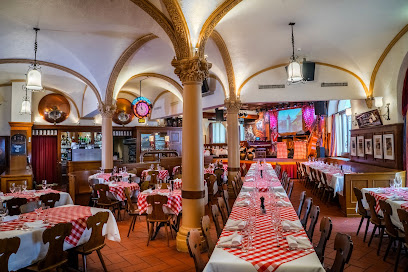
La Cucina
Experience authentic Italian cuisine at La Cucina in Lucerne – where delicious pizzas and warm hospitality await every visitor.
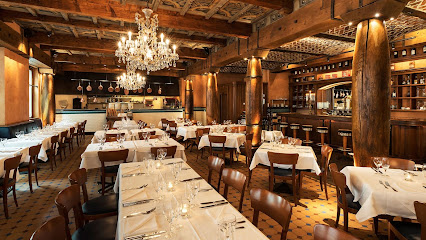
Rathaus Brauerei
Discover the charm of Lucerne at Rathaus Brauerei - where traditional Swiss cuisine meets expertly crafted local brews.
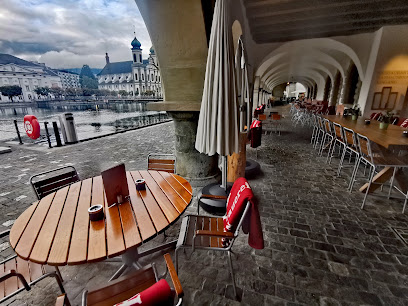
Restaurant Schiff
Experience authentic Swiss cuisine at Restaurant Schiff in Lucerne - a delightful blend of tradition and taste awaits you.
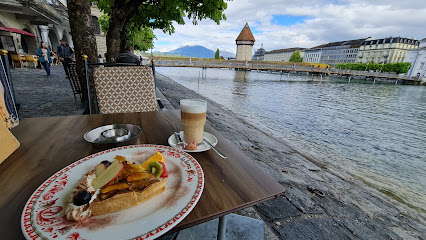
Ristorante Da Ernesto
Experience authentic Italian flavors at Ristorante Da Ernesto in Lucerne, where every dish is a celebration of fresh ingredients and culinary passion.
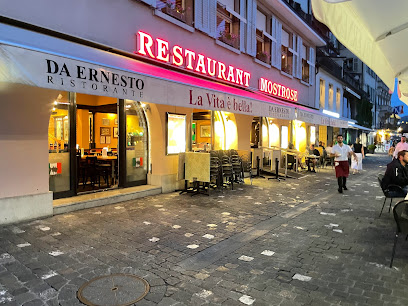
Schiffrestaurant Wilhelm Tell
Experience Swiss culinary delights at Schiffrestaurant Wilhelm Tell with stunning lake views in beautiful Lucerne.
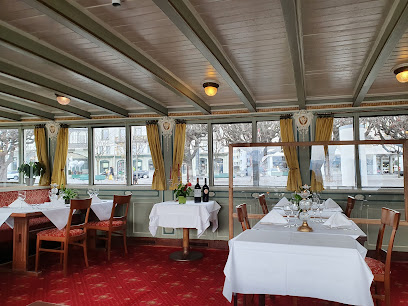
Wirtshaus Taube Luzern
Savor authentic Swiss flavors at Wirtshaus Taube Luzern—where tradition meets taste in the heart of Lucerne.
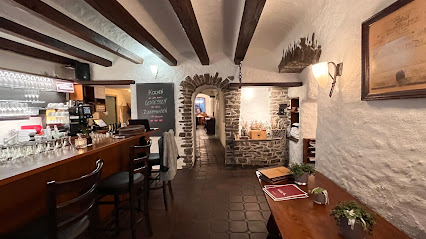
Ammos
Savor authentic Greek flavors at Ammos Restaurant in Lucerne—where culinary tradition meets modern dining.
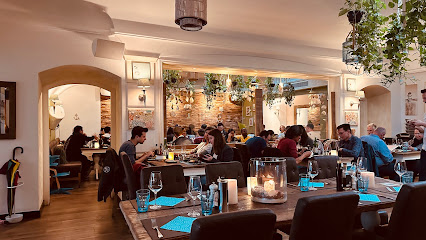
Restaurant Fritschi
Experience authentic Swiss cuisine at Restaurant Fritschi in Lucerne - where tradition meets modern culinary artistry.
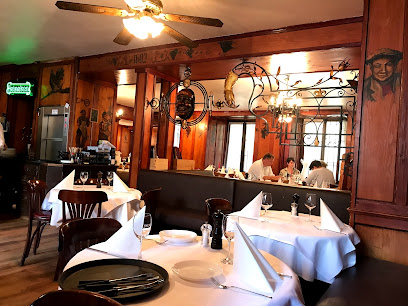
Pastarazzi
Experience the best of Italian and Swiss cuisine at Pastarazzi in Lucerne - where every meal tells a story.
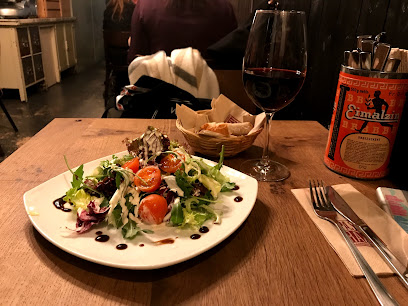
Mamma Leone
Experience authentic Italian cuisine at Mamma Leone in Lucerne – where every dish tells a story of tradition and flavor.
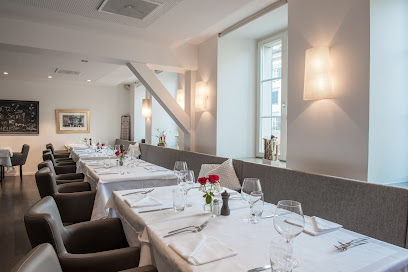
Markets, malls and hidden boutiques
MANOR Luzern
Explore MANOR Luzern, a vibrant department store offering clothing, home goods, perfumes, and toys in the heart of Lucerne, Switzerland.
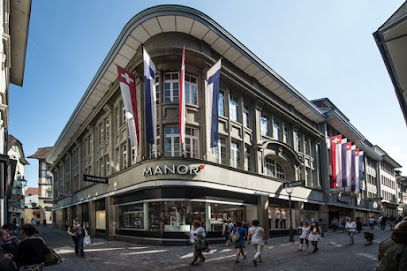
Casagrande Souvenirs • Watches Grendel
Explore the charm of Swiss craftsmanship at Casagrande Souvenirs in Lucerne, where unique gifts and exquisite watches await.
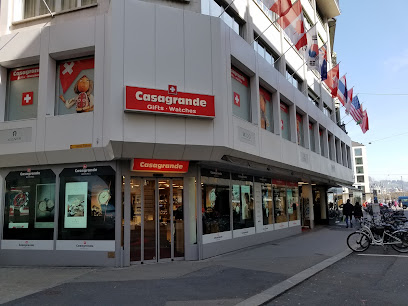
GLOBUS | Luzern Warenhaus
Discover the best of Swiss shopping at GLOBUS | Luzern Warenhaus, where quality meets variety in the heart of Lucerne.
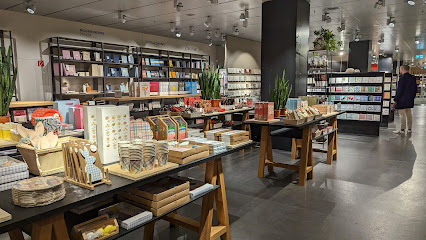
Lindt Chocolate Shop Verkehrshaus
Experience the World of Lindt at the Lucerne Chocolate Shop, where Swiss chocolate dreams come true with exquisite flavors and delightful creations.
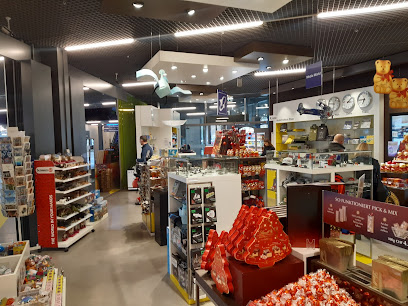
Victorinox Store Luzern
Explore the Victorinox Store Luzern for authentic Swiss products, from iconic knives to elegant luggage, in a charming shopping experience.
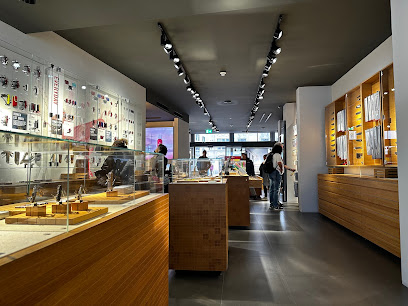
Max Chocolatier Boutique Luzern
Experience the finest artisan chocolates at Max Chocolatier Boutique Luzern, where every bite is a journey into exquisite flavor and craftsmanship.
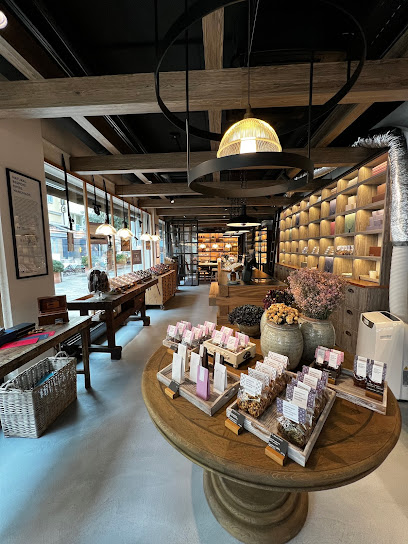
Flying Tiger Copenhagen
Explore the colorful and imaginative gift shop Flying Tiger Copenhagen in Lucerne, where creativity meets affordability in a delightful shopping experience.
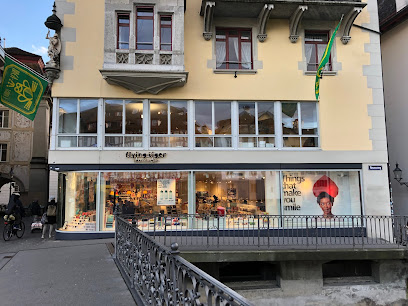
H&M
Discover stylish fashion for all ages at H&M in Lucerne – where affordability meets trendsetting designs in a vibrant shopping atmosphere.
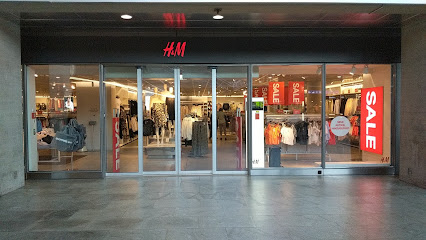
Søstrene Grene
Discover creativity at Søstrene Grene, Lucerne's charming shop for art supplies, home decor, and unique gifts that inspire your inner artist.
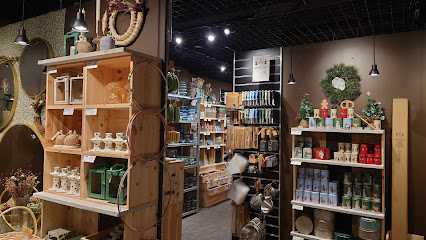
Casagrande Souvenirs • Watches Kapellgasse
Discover unique Swiss souvenirs and exquisite watches at Casagrande Souvenirs in Lucerne—your gateway to authentic Swiss craftsmanship.
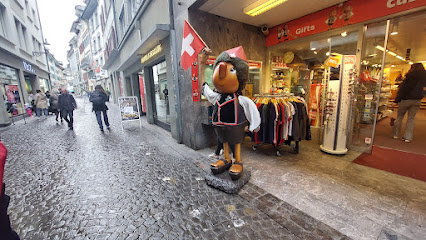
Cartier
Discover exquisite jewelry and luxury gifts at Cartier in Lucerne, a symbol of elegance and quality in the heart of Switzerland.
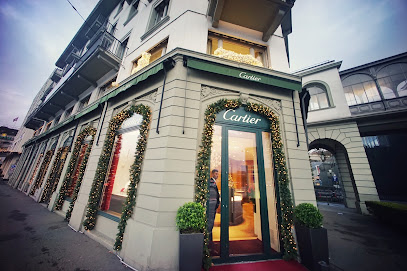
Changemaker
Explore Changemaker in Lucerne for unique gifts and eco-friendly fashion accessories that celebrate Swiss craftsmanship and sustainability.
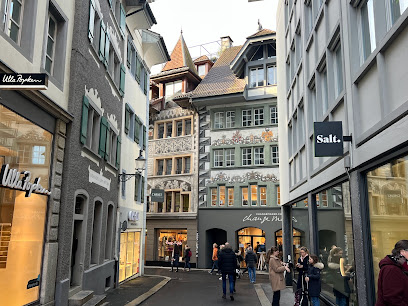
Swarovski Boutique Luzern
Discover the enchanting world of Swarovski in Lucerne, where luxury meets artistry in dazzling jewelry and exquisite decor.
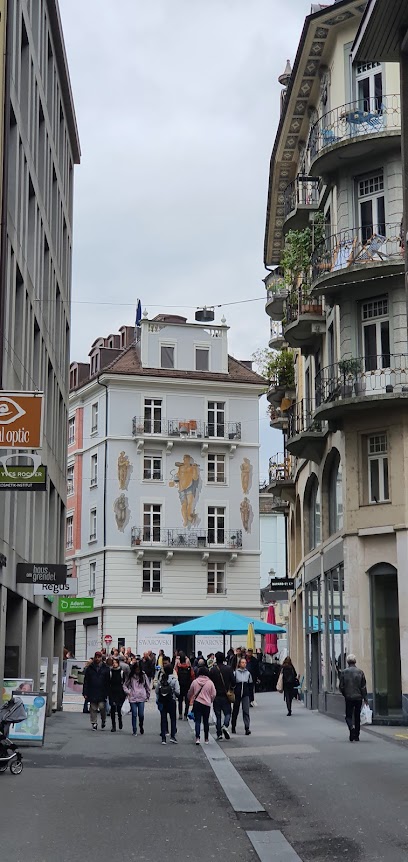
Old swiss shop
Discover unique Swiss souvenirs at the Old Swiss Shop in Lucerne, where quality meets tradition in a charming shopping experience.
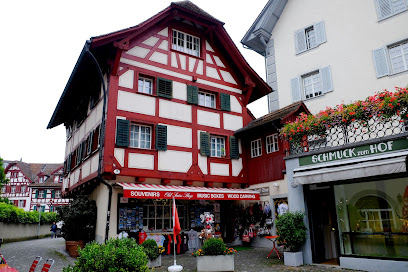
FIZZEN Luzern
Discover unique vintage clothing and quirky gifts at FIZZEN Luzern, a charming gift shop in the heart of Lucerne, Switzerland.
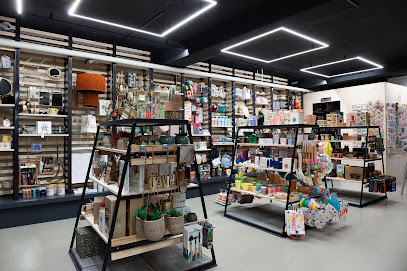
Essential bars & hidden hideouts
Mr. Pickwick Pub Luzern
Discover the charm of Mr. Pickwick Pub in Lucerne, where British cuisine meets a lively sports bar atmosphere with a stunning waterfront view.
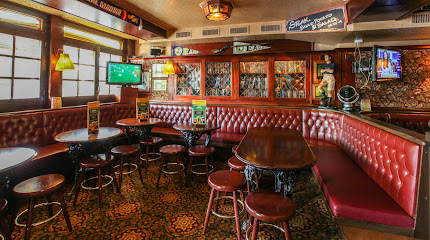
Penthouse
Discover the upscale nightlife of Penthouse Luzern, where stunning views and vibrant energy create an unforgettable experience.
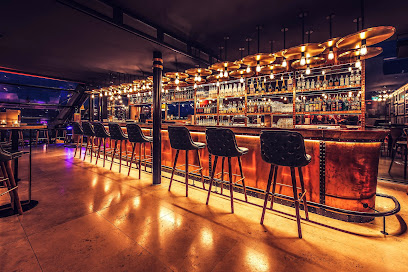
Suite small plates & cocktails
Discover the vibrant atmosphere and stunning views at Suite Small Plates & Cocktails in Lucerne, where culinary delights meet exquisite cocktails.
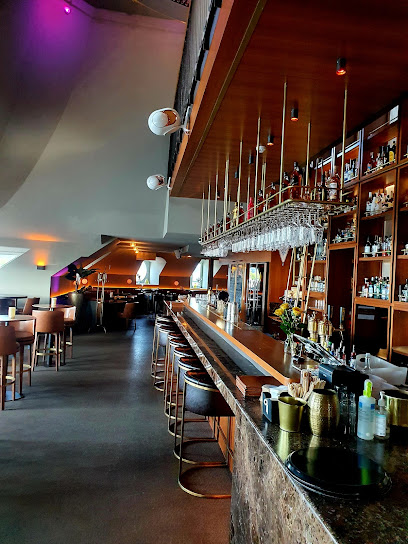
Shamrock Irish Pub
Discover the vibrant atmosphere of Shamrock Irish Pub in Lucerne, where Irish spirit meets Swiss hospitality for an unforgettable night out.
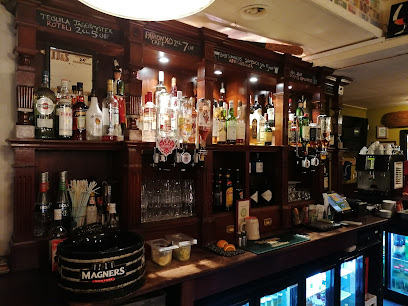
Sunset Bar Lucerne
Experience the breathtaking views and relaxing atmosphere at Sunset Bar Lucerne, the perfect spot for drinks and sunsets by the lake.
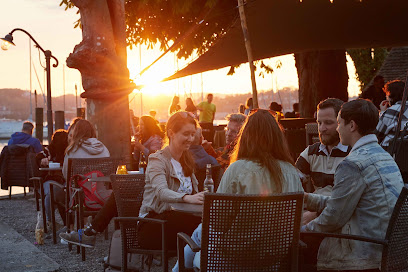
Bar 59
Discover the lively atmosphere of Bar 59 in Lucerne, where crafted cocktails and great company await in a vibrant nightlife setting.
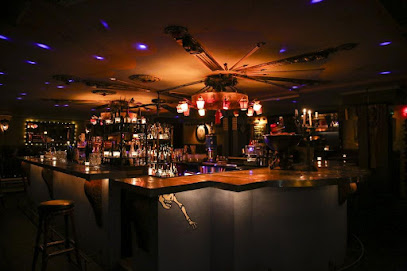
Seebar
Experience luxury at Seebar in Lucerne, where exquisite cocktails meet breathtaking views of Lake Lucerne.
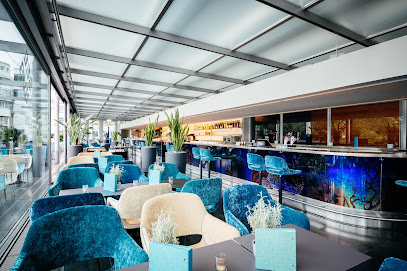
Blue Bar & Smokers Lounge
Experience luxury and relaxation at Blue Bar & Smokers Lounge in Lucerne, the perfect spot for cocktails, cigars, and captivating ambiance.
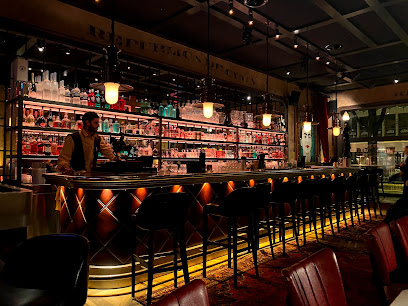
Down Town
Discover the energetic essence of Luzern's nightlife at Down Town, a vibrant bar and nightclub with a lively atmosphere and diverse drink selection.
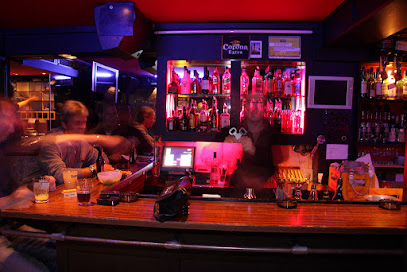
Bar Capitol
Discover the vibrant nightlife of Lucerne at Bar Capitol, where locals and tourists gather for exquisite drinks and a lively atmosphere.
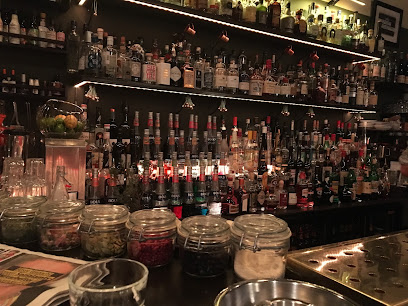
Shine
Discover the vibrant nightlife of Lucerne at Shine, where exquisite cocktails meet a chic lounge ambiance for an unforgettable evening.
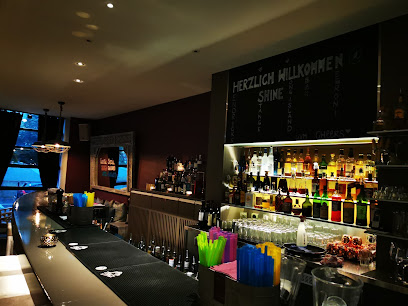
Kaspar Luzern
Experience the vibrant nightlife at Kaspar Luzern, a bar where locals and tourists unite over exquisite drinks and lively conversations.
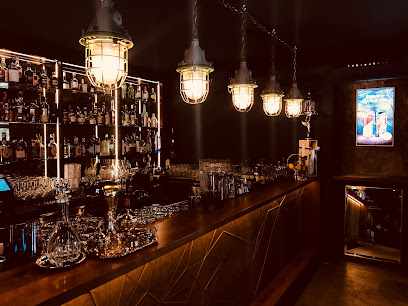
FINALE
Discover the vibrant nightlife of Lucerne at FINALE, a modern bar offering exquisite drinks and an inviting atmosphere for every traveler.
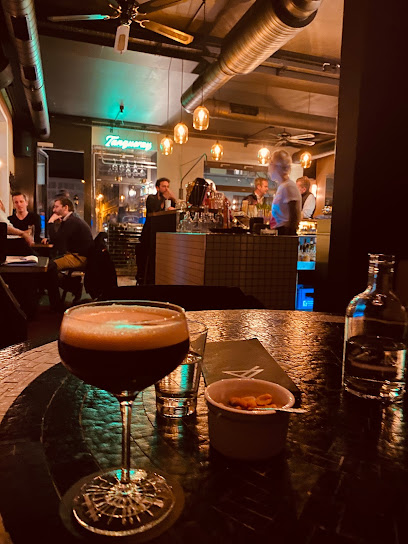
Franky Bar
Explore the lively atmosphere of Franky Bar in Lucerne, where delicious drinks and vibrant nightlife create unforgettable experiences.
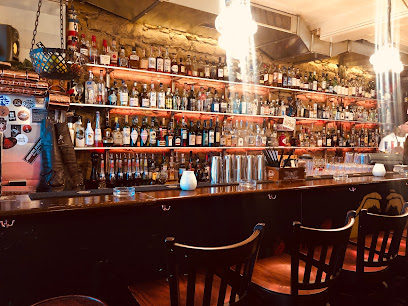
Local Phrases
-
- HelloGrüezi
[grüˈɛtsi] - GoodbyeAdieu
[adˈjø] - YesJa
[jaː] - NoNei
[naɪ] - Please/You're welcomeBitte
[ˈbɪtə] - Thank youMerci
[ˈmɛrtsi] - Excuse me/SorryEntschuldigung
[ɛntˈʃʊldiɡʊŋ] - How are you?Wie geht es dir?
[viː ɡɛt ɛs diːr] - Fine. And you?Gut. Und dir?
[ɡuːt ʊnt diːr] - Do you speak English?Sprechen Sie Englisch?
[ˈʃprɛxən ziː ˈɛŋlɪʃ] - I don't understandIch verstehe nicht
[ɪç fɛrˈʃteːə nɪçt]
- HelloGrüezi
-
- I'd like to see the menu, pleaseIch möchte bitte die Speisekarte sehen
[ɪç mœxtə ˈbɪtə diː ˈʃpaɪzəkɑrtə zeːən] - I don't eat meatIch esse kein Fleisch
[ɪç ˈɛsə kaɪn flaɪʃ] - Cheers!Prost!
[prost] - I would like to pay, pleaseIch möchte bitte zahlen
[ɪç mœxtə ˈbɪtə ˈtsaːlən]
- I'd like to see the menu, pleaseIch möchte bitte die Speisekarte sehen
-
- Help!Hilfe!
[ˈhɪlfə] - Go away!Gehen Sie weg!
[ˈɡeːən ziː vɛk] - Call the Police!Rufen Sie die Polizei!
[ˈrufən ziː diː pɔˈliːtsai] - Call a doctor!Rufen Sie einen Arzt!
[ˈrufən ziː ˈaɪnən ˈaʁts] - I'm lostIch bin verloren
[ɪç bɪn fɛrˈloːrən] - I'm illIch bin krank
[ɪç bɪn kraŋk]
- Help!Hilfe!
-
- I'd like to buy...Ich möchte ... kaufen
[ɪç mœxtə ... kaʊfən] - I'm just lookingIch schaue nur
[ɪç ʃaʊə nuːr] - How much is it?Wie viel kostet das?
[viː fiːl ˈkɔstət das] - That's too expensiveDas ist zu teuer
[das ɪst tsuː ˈtɔɪər] - Can you lower the price?Können Sie den Preis senken?
[ˈkœnən ziː dɛn praɪs ˈzɛŋkən]
- I'd like to buy...Ich möchte ... kaufen
-
- What time is it?Wie spät ist es?
[viː ʃpɛt ɪst ɛs] - It's one o'clockEs ist ein Uhr
[ɛs ɪst aɪn ʊr] - Half past (10)Halb (zehn)
[halb (tsɛn)] - MorningMorgen
[ˈmɔrɡən] - AfternoonNachmittag
[ˈnaχmɪtaːk] - EveningAbend
[ˈaːbənt] - YesterdayGestern
[ˈɡɛstɛrn] - TodayHeute
[ˈhɔʏtə] - TomorrowMorgen
[ˈmɔrɡən] - 1Eins
[aɪns] - 2Zwei
[tsvaɪ] - 3Drei
[dʁaɪ] - 4Vier
[fiːɐ] - 5Fünf
[fʏnf] - 6Sechs
[zɛks] - 7Sieben
[ˈziːbən] - 8Acht
[axt] - 9Neun
[nɔɪn] - 10Zehn
[tsɛn]
- What time is it?Wie spät ist es?
-
- Where's a/the...?Wo ist ein/der...?
[vo ɪst aɪn/deːr] - What's the address?Was ist die Adresse?
[vas ɪst diː ˈadrɛsə] - Can you show me (on the map)?Können Sie mir zeigen (auf der Karte)?
[ˈkœnən ziː miːr ˈʦaɪɡən (aʊf deːr ˈkaʁtə)] - When's the next (bus)?Wann kommt der nächste (Bus)?
[van kɔmt deːr ˈnɛχstə (bʊs)] - A ticket (to ....)Eine Fahrkarte (nach ....)
[ˈaɪnə ˈfaːrkartə (nax)]
- Where's a/the...?Wo ist ein/der...?
History of Lucerne
-
Lucerne, known as Luzern in German, traces its origins back to the 8th century when it was founded as a small fishing village. The settlement grew around the Benedictine Monastery of St. Leodegar, which was established in 750 AD. Over time, the village expanded, becoming a crucial center for trade and commerce due to its strategic location by Lake Lucerne and the Reuss River.
-
In 1332, Lucerne joined the Old Swiss Confederacy, aligning itself with the cantons of Uri, Schwyz, and Unterwalden. This alliance was a significant step towards Swiss independence from the Habsburg Empire. The signing of the Federal Charter marked Lucerne's commitment to the confederation, playing a pivotal role in the region's political landscape.
-
The iconic Kapellbrücke, or Chapel Bridge, was constructed in 1333. This covered wooden footbridge, spanning the Reuss River, is adorned with a series of 17th-century paintings depicting scenes from Lucerne's history. The bridge, along with the adjacent Wasserturm (Water Tower), serves as a symbol of the city's historical and architectural heritage.
-
The Battle of Sempach in 1386 was a decisive conflict between the Swiss Confederates and the Habsburgs. Lucerne played a critical role in this battle, which resulted in a significant victory for the Swiss forces. This triumph further solidified Lucerne's position within the confederation and contributed to the weakening of Habsburg influence in the region.
-
During the 16th and 17th centuries, Lucerne experienced a cultural and architectural renaissance. The city saw the construction of impressive buildings such as the Jesuit Church, built between 1666 and 1677, which is considered Switzerland's first large Baroque church. This period also saw the rise of Lucerne as a center for art and education.
-
In 1847, Lucerne became a focal point during the Sonderbund War, a civil conflict between the conservative Catholic cantons, including Lucerne, and the liberal Protestant cantons. The defeat of the Sonderbund led to the establishment of a more centralized Swiss federal state in 1848. Despite the conflict, Lucerne retained its cultural and religious significance.
-
In the 19th century, Lucerne began to attract tourists, particularly from England. The city's stunning landscapes, including Mount Pilatus and Lake Lucerne, became popular destinations. The opening of the Gotthard Railway in 1882 further boosted tourism, establishing Lucerne as a key hub in Switzerland's burgeoning travel industry.
-
Today, Lucerne is renowned for its vibrant cultural scene, hosting events such as the Lucerne Festival, one of the world's leading classical music festivals. The city also celebrates Fasnacht, a lively carnival that showcases Lucerne's rich traditions and community spirit. Modern Lucerne blends its historical legacy with contemporary culture, attracting visitors from around the globe.
Lucerne Essentials
-
Lucerne is well-connected and easily accessible by various modes of transportation. The nearest major airport is Zurich Airport (ZRH), located about 68 kilometers away. From Zurich Airport, you can take a direct train to Lucerne, which takes approximately one hour. Alternatively, you can drive or take a taxi. Lucerne is also well-served by the Swiss Federal Railways (SBB), with frequent trains from major Swiss cities such as Zurich, Geneva, and Basel.
-
Lucerne has an efficient and reliable public transportation system, including buses, trolleybuses, and boats. The city's main train station, Lucerne Bahnhof, is a central hub for both local and regional transport. For local travel, consider purchasing a Tageskarte (day pass), which allows unlimited travel on public transportation within the city for a day. Taxis are available but can be expensive. Renting a bike is another popular and eco-friendly option for exploring the city. For scenic travel, don't miss a boat trip on Lake Lucerne.
-
The official currency in Switzerland is the Swiss Franc (CHF). Credit and debit cards are widely accepted in hotels, restaurants, and shops. ATMs are plentiful and can be found throughout Lucerne. It's advisable to carry some cash, especially for small purchases or in more remote areas. Currency exchange services are available at banks, the airport, and major train stations.
-
Lucerne is generally a safe city with low crime rates. However, like any tourist destination, it's wise to take standard precautions. Avoid leaving valuables unattended and be cautious in crowded areas where pickpocketing can occur. The Old Town and the area around the train station are popular tourist spots but can be busy, so stay vigilant. There are no specific high-crime areas targeting tourists in Lucerne.
-
In case of emergency, dial 112 for immediate assistance, which covers police, fire, and medical emergencies. Lucerne has several hospitals and clinics, including the Luzerner Kantonsspital, which provides comprehensive medical services. Pharmacies are readily available for minor health issues. It's recommended to have travel insurance that covers medical expenses.
-
Fashion: Do dress smart-casual; Swiss people appreciate neat and tidy appearances. Avoid overly casual or revealing clothing, especially in more formal settings. Religion: Do respect religious customs; when visiting churches, dress modestly and remain quiet. Public Transport: Do be punctual and validate your ticket before boarding. Don't talk loudly or eat and drink on public transport. Greetings: Do greet people with a handshake and maintain eye contact. A friendly 'Grüezi' (hello) is appreciated. Eating & Drinking: Do try local specialties like raclette and fondue. Don't rush your meals; dining is often a leisurely experience.
-
To experience Lucerne like a local, take a stroll along the Reuss River and explore the hidden gems of the Old Town. Visit the weekly farmers' market at Helvetiaplatz for fresh produce and local delicacies. Enjoy a hike up Mount Pilatus or Mount Rigi for breathtaking views. Engage with locals in small talk; they are generally friendly and willing to share insights about their city. For a unique experience, take part in a traditional Swiss festival if your visit coincides with one.
Nearby Cities to Lucerne
-
Things To Do in Zurich
-
Things To Do in Grindelwald
-
Things To Do in Interlaken
-
Things To Do in Thun
-
Things To Do in Murren
-
Things To Do in Bern
-
Things To Do in Basel
-
Things To Do in Balzers
-
Things To Do in Schaan
-
Things To Do in Gamprin
-
Things To Do in Vaduz
-
Things To Do in Eschen
-
Things To Do in Triesenberg
-
Things To Do in Mauren
-
Things To Do in Ruggell

















